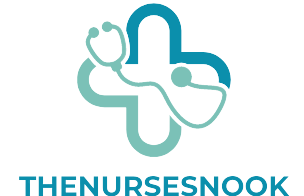Headaches are a common ailment that can range from mildly irritating to debilitating, affecting people of all ages and backgrounds. Whether it is a dull ache or a throbbing pain, headaches can disrupt daily life and hinder productivity. Understanding the symptoms, causes, and diagnosis of headaches is crucial in finding effective treatment options. This article will delve into the various aspects of headaches, including their symptoms, causes, and how they are diagnosed. Additionally, it will explore the different treatment options available, from medications to lifestyle changes and alternative therapies. Lastly, it will discuss the warning signs and red flags that indicate when it is necessary to seek medical attention for headaches. By gaining a comprehensive understanding of headaches, individuals can better manage and alleviate their symptoms, improving their overall quality of life.
1. Understanding Headaches: Symptoms, Causes, and Diagnosis
Headaches are a common ailment experienced by people from all walks of life. Whether it’s a dull ache or a throbbing pain, headaches can be debilitating and interfere with daily activities. Understanding the symptoms, causes, and diagnosis of headaches is crucial in finding effective treatments and managing this condition.
Symptoms of headaches can vary greatly depending on the type and underlying cause. The most common symptom is a pain or discomfort in the head, which can be localized or spread across different areas. Headaches can also be accompanied by other symptoms such as sensitivity to light or sound, nausea, vomiting, dizziness, or even visual disturbances. These additional symptoms can provide important clues to healthcare professionals in determining the cause and appropriate treatment for a headache.
Identifying the exact cause of a headache can be challenging as it can be influenced by various factors. One of the most common causes of headaches is tension and stress. Poor posture, lack of sleep, and prolonged screen time can contribute to tension headaches. Migraines, on the other hand, are often characterized by severe throbbing pain on one side of the head, accompanied by nausea, vomiting, and sensitivity to light and sound. Other causes of headaches may include sinus congestion, hormonal changes, certain medications, dehydration, or even underlying health conditions such as high blood pressure or brain tumors.
Diagnosing headaches typically involves a thorough medical history assessment and physical examination. The healthcare provider will ask detailed questions about the nature and frequency of the headaches, associated symptoms, and any potential triggers. It is essential to provide accurate information to aid in the diagnosis. In some cases, additional diagnostic tests such as blood tests, imaging studies (like MRI or CT scan), or a lumbar puncture may be recommended to rule out any underlying conditions.
Once the type and cause of the headache are determined, appropriate treatment can be initiated. Over-the-counter pain relievers, such as acetaminophen or ibuprofen, are commonly used for mild to moderate headaches. For more severe or recurrent headaches, prescription medications may be required. These can include triptans, which specifically target migraines, or preventive medications to reduce the frequency and intensity of headaches. Lifestyle modifications, such as stress management techniques, regular exercise, adequate sleep, and a balanced diet, can also play a vital role in preventing and managing headaches.
In conclusion, headaches can significantly impact an individual’s quality of life, making it essential to understand their symptoms, causes, and diagnosis. Recognizing the different types of headaches and their associated symptoms can aid in accurate diagnosis. With the correct identification of the cause, appropriate treatment options can be explored, ranging from over-the-counter
2. Effective Treatment Options for Headaches: Medications, Lifestyle Changes, and Alternative Therapies
When it comes to treating headaches, there are several options available to help alleviate the pain and discomfort. Effective treatment options for headaches encompass medications, lifestyle changes, and alternative therapies. These approaches aim to not only provide immediate relief but also address the underlying causes of headaches to prevent future occurrences.
Medications are often the first line of defense for treating headaches. There are various types of medications available, each targeting different types of headaches. For tension headaches and migraines, over-the-counter pain relievers such as acetaminophen, ibuprofen, or aspirin can often provide relief. Stronger prescription medications may be necessary for more severe or chronic headaches. These may include triptans, which specifically target migraines, or ergots, which constrict blood vessels in the brain to relieve pain.
In addition to medications, lifestyle changes can play a significant role in managing headaches. Identifying and avoiding triggers, such as certain foods, environmental factors, or stressors, can help reduce the frequency and intensity of headaches. It is also essential to establish healthy sleep habits, as lack of sleep or irregular sleep patterns can contribute to headaches. Regular exercise, stress management techniques such as relaxation exercises or meditation, and maintaining a balanced diet can also contribute to headache prevention.
Alternative therapies have gained popularity as complementary approaches to traditional medication. These therapies focus on holistic healing and aim to address the root causes of headaches. Acupuncture, for example, involves the insertion of thin needles into specific points on the body to restore balance and relieve pain. Chiropractic care focuses on manipulating the spine and musculoskeletal system to alleviate tension and improve overall well-being. Other alternative therapies include massage therapy, herbal remedies, aromatherapy, and biofeedback.
It is important to note that while alternative therapies can be beneficial for some individuals, they may not be effective for everyone. It is crucial to consult with a healthcare professional before incorporating alternative therapies into your headache treatment plan, especially if you are currently taking any medications or have any pre-existing medical conditions.
Overall, effective treatment options for headaches encompass a combination of medications, lifestyle changes, and alternative therapies. By identifying triggers, managing stress levels, and adopting healthy habits, individuals can significantly reduce the frequency and severity of headaches. Working closely with healthcare professionals to find the most suitable treatment approach can ensure optimal management of headaches and improve overall quality of life.
3. When to Seek Medical Attention for Headaches: Warning Signs and Red Flags
When it comes to headaches, most people can manage them with over-the-counter pain relievers, rest, or other self-care measures. However, there are instances when a headache may require medical attention. Recognizing the warning signs and red flags is crucial in determining when it’s time to seek medical assistance.
One of the key indicators that a headache warrants medical attention is a sudden and severe onset. If you experience the worst headache of your life, it could be a sign of a more serious condition. This is especially true if it occurs suddenly, without any apparent trigger. In such cases, it is important to seek immediate medical attention as it could be indicative of a brain hemorrhage, meningitis, or other life-threatening conditions.
Another red flag is the presence of neurological symptoms accompanying the headache. These may include weakness, numbness, difficulty speaking, confusion, or changes in vision. If you experience any of these symptoms along with a headache, it may indicate a neurological problem that requires medical evaluation.
Headaches that are associated with trauma, such as a blow to the head, should also be taken seriously. Even if the injury seems minor, it is advisable to seek medical attention to rule out any underlying issues like a concussion or other head injuries.
Certain characteristics of a headache can suggest a more serious underlying cause. These include a headache that progressively worsens over time, especially if it is accompanied by other symptoms like weight loss, fever, or seizures. Additionally, if the headache is different from your usual pattern or if it persists for an unusually long duration, it is advisable to consult a healthcare professional.
Individuals with a history of cancer or weakened immune systems should be particularly cautious when experiencing headaches. In these cases, any new or severe headache should be evaluated by a healthcare provider promptly, as it could indicate a tumor or an infection.
Lastly, if you have been prescribed medication for headaches but find that they are becoming more frequent or more severe, it is important to seek medical attention. This could indicate medication overuse or the need for a change in treatment strategy.
In conclusion, although most headaches can be managed at home with self-care measures, it is crucial to be aware of the warning signs and red flags that may indicate the need for medical attention. Sudden and severe onset, neurological symptoms, headaches following trauma, progressively worsening headaches, headaches with additional concerning symptoms, a history of cancer or weakened immune system, and worsening headaches despite medication should all prompt a visit to a healthcare professional. Your health and well-being are worth the extra caution and reassurance that seeking medical attention can provide.



